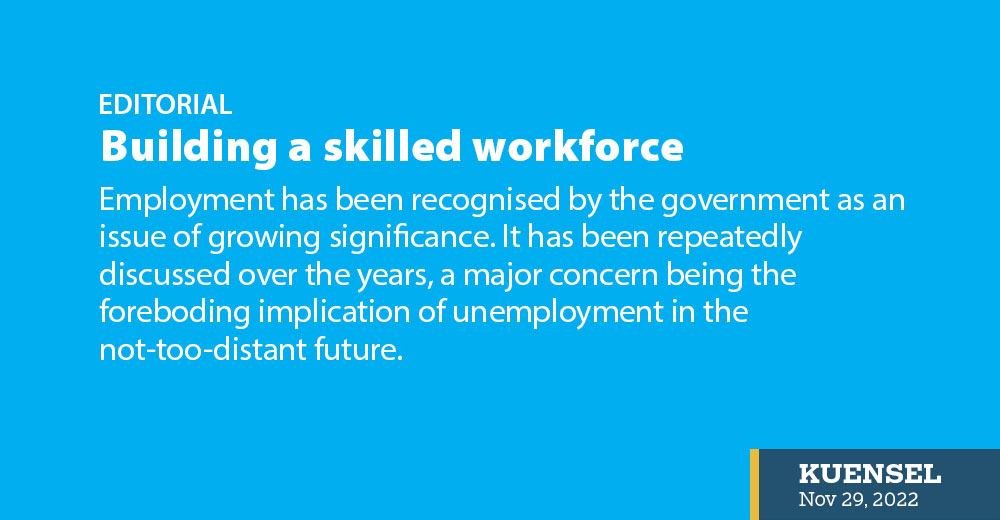Employment has been recognised by the government as an issue of growing significance. It has been repeatedly discussed over the years, a major concern being the foreboding implication of unemployment in the not-too-distant future.
In the face of an increasing number of youth leaving the country to study or work abroad, Lyonchhen Dr Lotay Tshering said that Bhutan has to be a high-income country and that the economy should increase at a much higher pace to check that trend. For that, we need to build a skilled workforce.
The immediate problem is clear: we have on one hand thousands of students completing school and graduating from tertiary institutions every year with more and more of them unable to find jobs, on the other, we have many government and private organisations in urgent need of manpower, especially skilled workers, and not being able to find them.
As the problem comes into focus, what we see is the need for something in between, a range of training programmes to prepare youth for the job market. What we need are training centres and institutions at all levels, offering courses in the most urgently required fields.
Skills development has long been recognised in Bhutan as an urgent requirement. Apart from the more academic-oriented courses, Bhutanese society is short of the most basic skilled servicemen which include plumbers and electricians. Our needs of the hour are emerging every day, from the expanding tourism industry to a variety of IT services.
The need for training extends from school-leavers to university graduates and from young professionals to veteran civil servants. In the traditional sectors like agriculture and livestock, courses are aimed at farmers and extension workers but they need to address school-leavers to encourage some of them to return to the farms.
The government’s good governance policy requires that the skills and proficiency of civil servants at all levels and should be regularly updated. In the now prioritised IT sector, for example, nearly every civil servant needs to adapt to electronic mail, electronic filing, video conferencing and office management, among others.
Both government policy and international trends today point towards the relevance of the private sector in the training field. But the private sector after the Covid-19 pandemic is not in a position to make the investments required to establish training institutions.
The government has also been increasingly engaged in ensuring the quality of training programmes and certifying the courses. But its main role must be to encourage more training institutions and facilities through relevant rules, subsidies, infrastructure, and even sponsorship of the trainees. Our aim should be high-quality training at par with international standards.
We have no doubt that the need to train our workforce has been well recognised. It has also been accepted that such a transformation cannot be achieved overnight. We need to sustain our efforts and not lose sight of our goals.


